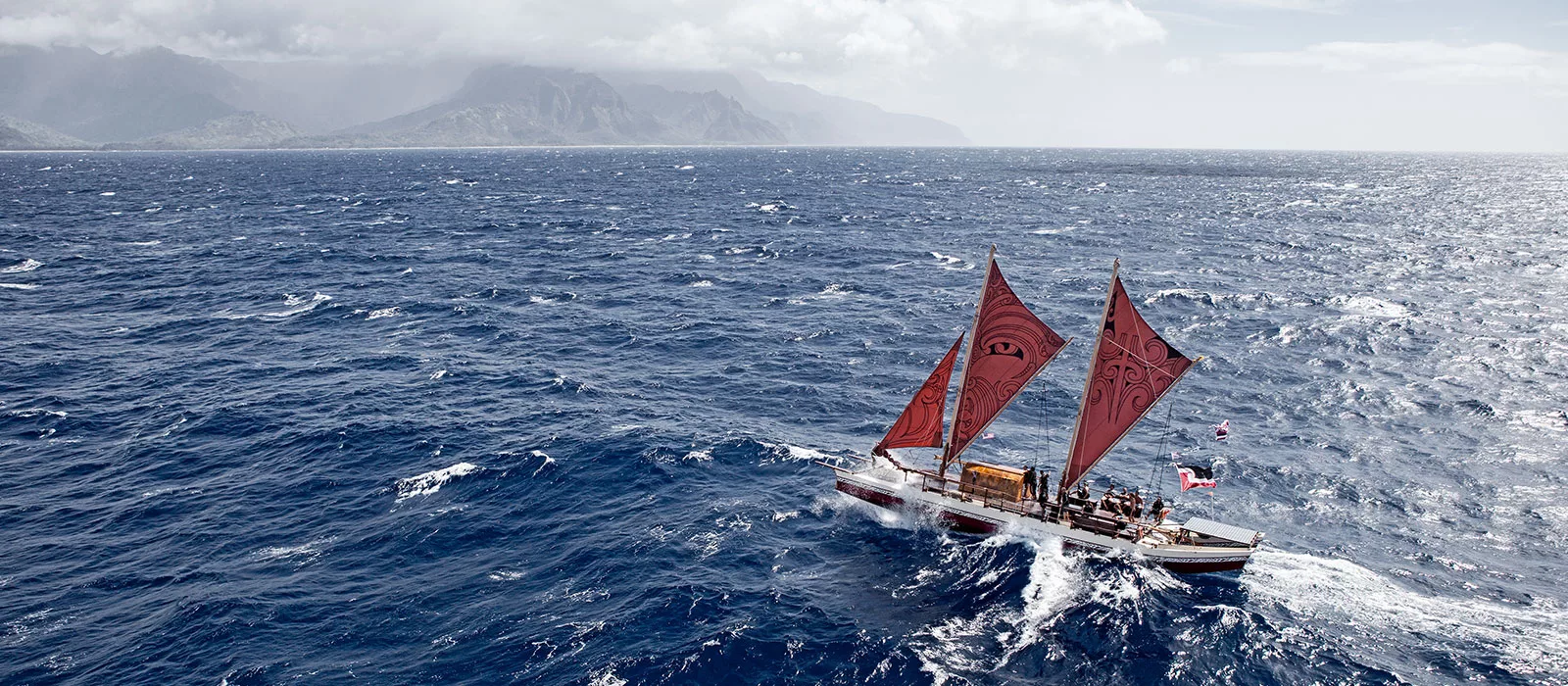“As a foundation, we are not active in research ourselves. Rather, our task is to promote current research projects, interdisciplinary knowledge transfer and adequate communication strategies. We all need to realise how dependent we are on marine ecosystems and how we can contribute to their protection. No matter where on this planet we live.”
– Dieter Paulmann
Okeanos Research
The Pacific Ocean is the largest ocean on our planet and at the same time the marine habitat with the least available data. Yet regularly collected data is not only crucial for immediate disaster preparedness. It is equally fundamental for developing medium- and long-term adaptation strategies to and mitigation of climate change impacts such as ocean acidification, biodiversity loss and sea-level rise.
Okeanos Foundation for the Sea cooperates with local and international research institutions and scientists implementing social and natural science research missions in the Pacific. Due to the nature of our fleet and the connection to the local population through our crew, we are able to support our partners in research and science to collect data even in remote and difficult to access areas and to prepare research projects in accordance with local protocols and in coordination with appropriate institutions on the ground.
With the use of our ‘Vaka Okeanos’ in the Mediterranean Sea, we give young up-and-coming scientists and committed young people the opportunity to cooperate in setting up citizen science projects and develop adequate and creative communication tools.
Supported research projects
Cooperation Okeanos and SOC Pacific of Leibniz Centre for Tropical Marine Research (ZMT)
Due to the pandemic, research expeditions are only possible to a limited extent for many scientists. In order to be able to continue research in the South Pacific island nation of Vanuatu, Okeanos and Dr. Annette Breckwoldt, marine scientist at the Leibniz Centre for Tropical Marine Research (ZMT), developed a pilot project with our team in Vanuatu in 2022, which was completed in March 2022.
For the first time, the Okeanos crew was on a research mission to two remote islands of the Vanuatu archipelago: Malekula and Maskelyn. The crew members conducted interviews with the local population. Also on board were a cameraman and locals from both islands who were able to interview their compatriots in their own language and capture the interviews on film.
Volcano Waka Lab
An international research team under the lead of Dr. Ian Schipper of Victoria University of Wellington (New Zealand) has set off to measure gases, aerosols, and isotopic signatures at more than twenty Melanesian volcanoes, both on land and under the sea.
Difficulties of accessing these remote areas, or even finding the underwater volcanoes, have troubled the team for a while. Spported by the intimate knowledge of the Okeanos crew and due to the ability of the Vaka Motu to reach out to the most unaccessable places, the first phase of the collaboration between Schippers team and Okeanos Foundation was a full success and proofed that combining modern technology and traditional knowledge in a mobile ‘Volcano Waka Lab’ https://www.volcano-waka-lab.com/waka is the blueprint for future research projects.
Scientific research on climate migration with Dr. Kira Vinke
Conducting climate-migration research as a social scientist in one of the most remote regions of the world is not an easy task. Not only because of the challenges of accessing remote atolls and islands in the Pacific, but also due to the neccessary intensive coordination with local communities prior to data collection. The close connection of Okeanos staff and crew to the island communities was a successful start for the work Dr. Kira Vinke (Head of Centre for Climate and Foreign Policy of the German Council on Foreign Relations https://dgap.org/de/user/26730) was able to carry out on Ailuk and Maloelap (Marshall Islands).
Pilot project: Polynesian catamarans in use for research
Research expeditions are part of everyday life for the scientists at the Leibniz Center for Tropical Marine Research (ZMT). Not only the current pandemic, but also ecological and economic considerations gave the Okeanos team and Dr. Annette Breckwoldt, marine scientist at the ZMT, an idea.
